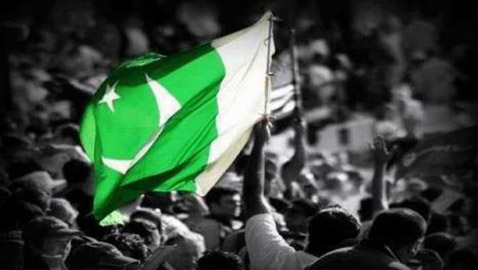Pakistan, a state that failed to become a nation
It is incorrect to accuse Pakistanis of being atavistic for if they have not done anything to deviate from their ancestral identity.
Imported cultures and ideologies from the West, Arabia and India have sabotaged the developing culture of Pakistan and it is because of the increasing disparity between ethnicity, classes and religious sects that exist even after sixty nine years. Pakistan is still on paper state which is yet to become a nation.
The role of linguistic nationalism in the creation of the state was second only to that of religious nationalism. Muslim poets and philosophers were back bone of the Pakistan movement. Urdu is the language of aadaab, the language of aristocrats. The language which expressed the love of Ghalib, the philosophy of Iqbal, language that revealed Manto’s boldness, expressed Jalib’s defiance and voiced Faiz’s revolution.
It was to be the bridge between the diverse cultures of a newly formed state. It was to be a common identity, it would fill the gap that existed between the population of Pakistan. Sadly this bridge was never constructed. What constructed was instead were the motorways.
While they have succeeded in their purpose of connecting major cities and making intra-province commute efficient and easier, they have failed to bring the communities together. The M1 connects people from two entirely different ethnicities, with unlike interests, different languages and different cultures. The keen observer finds it odd and difficult to believe that these two distinctly different communities are a part of one country. Pakistan literally has all kinds of people living here. Basically Pakistan has become a combination of cult

The failed policy makers have murdered the ideology of Pakistan. With nothing but religion in common, Pakistan of 2016 fails to meet the criteria of nationhood. The literal application of the two nation theory which created Pakistan now disintegrates it.
The two elements of ideological extremes within the Muslim community of this ground have resurfaced as in the ideological rivalry of the early Muslims liberals led by Sir Syed Ahmed Khan and traditional Muslim conservatives. Where on one side, we have a community that applies Arabic tajweed even as they speak Urdu however on the other we have fanatical liberals who aspire to be the best by imitating the West. One wants the imposition of Shariah Law and the other secularization. With funny, imported accents on both the competing sides, it is correct to say that the Pakistani problem is not a political one it is rather a social one.
As Pakistani’s lose their indigenous identity it looks for an Iqbal-esque philosophy to bring the community together and develop the concept of nationhood. To neutralize the struggle between Islamic extremism and neo-imperialism. It is imperative for the legislature to develop a nation building policy to bring a harmony to this divided land.

